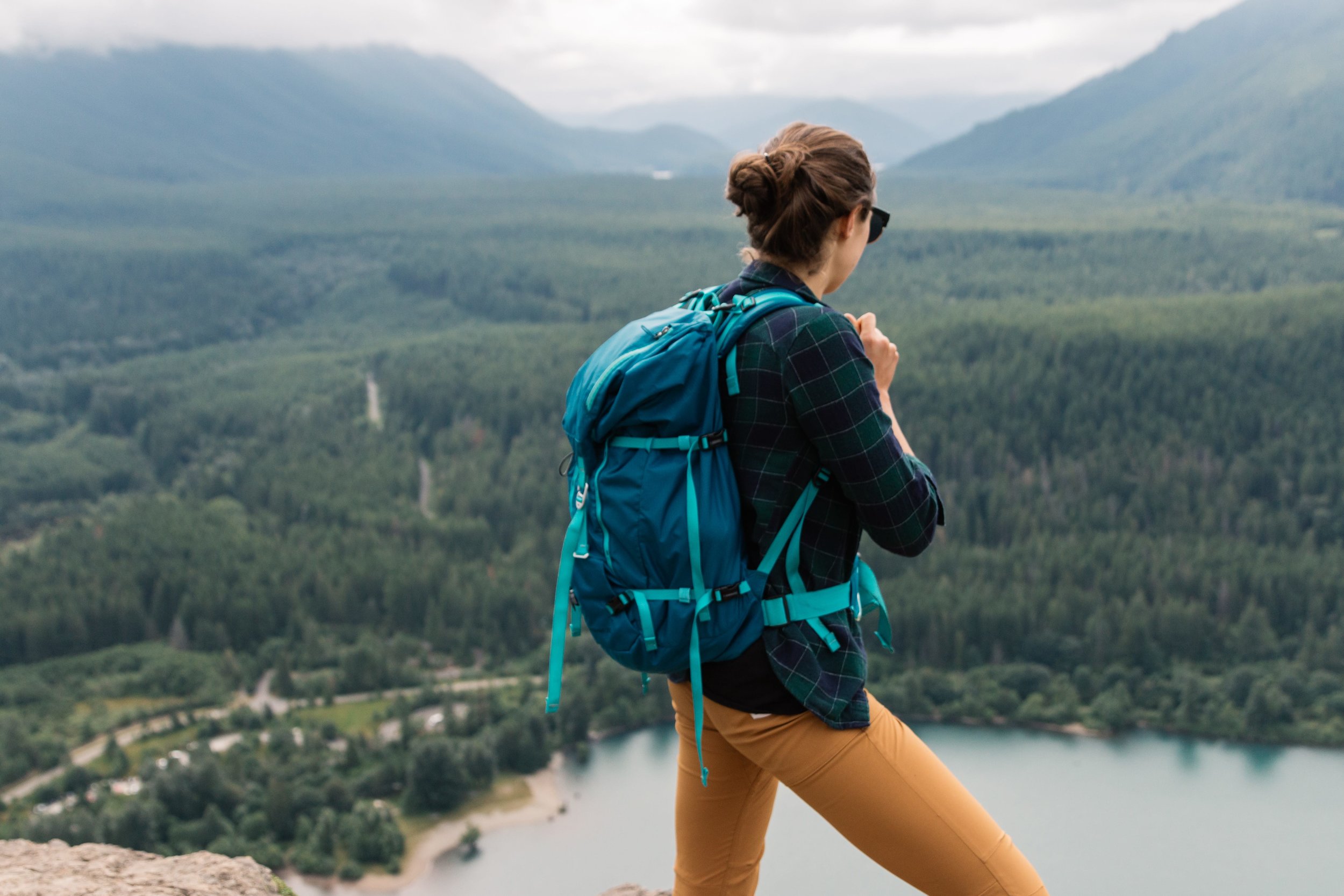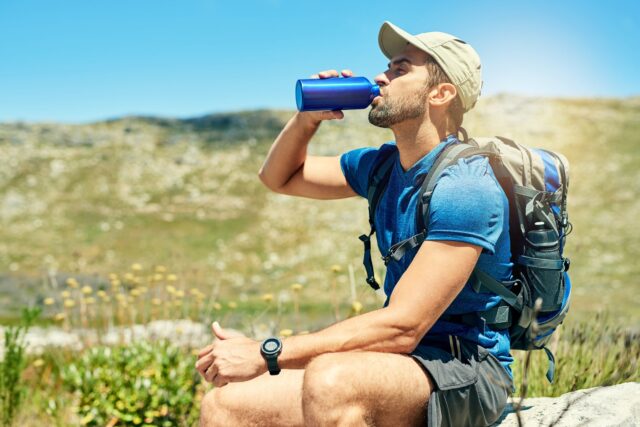To beginners, hiking can seem like a stroll in the hills without a care in the world. Ideally, that’s the point of waking in nature. Together with the bevvy of health benefits, walking in nature is one of the best activities you can do.
In reality, however, hikers need to take precautions for all eventualities. And one key ingredient to hiking is making sure you stay well hydrated – but not over-hydrated.
The amount of water intake you will need whilst you’re out hiking depends on the heat, humidity, your age, genetics, gender, age, body weight, humidity, air movement, levels of physical fitness, and the intensity of physical activity.
In other words, there is no hard and fast rule to stay hydrated when hiking. You will naturally take a drink as and when you need to throughout the day. But how do you know how much water to take with you?
How much water to drink when hiking

Before you head out on your walk, you should drink at least two glasses of water 30 minutes to an hour before you start your hike. This ensures you have a reasonable amount of hydration to burn off before you need to dip into your on-hike resources.
Whilst you are out on the trail, it is recommended that you drink around 120-250 ml every 15-20 minutes. This helps to keep your muscles hydrated and ward off cramps.
Be mindful to ration your water intake. Drinking too much water in one go can dilute your blood. You’re then at a higher risk of experiencing hyperhydration which causes dizziness, nausea, and disorientation. That’s not good when you’re out in nature.
You will notice the same symptoms with dehydration as well. However, it’s easier to detect when you’re dehydrating well ahead of time. Whenever you feel thirsty, you’re dehydrating.
If the walking trail you are on takes more than an hour to complete, experts recommend replenishing the water your body loses with isotonic sports drinks that contain electrolytes.
Electrolytes play an important role in maintaining the balance of water in the body and help to move nutrients to cells together with cleaning out waste from the bloodstream. They also regulate critical functions that enable nerve impulses to communicate with muscles.
How much water do you need?

The amount of water you take with you on a hike really depends on the length of the trail. If you’re going on a multi-day hike, decide how many bottles you want to carry.
Fortunately, most walking trails these days have water taps where you can refill bottles. If not, calculate how much water you think you will need if you are taking small sips every 20-30 minutes.
Also bear in mind that you should retain at least one-third of the water for the latter half of the walk. The walk back down may seem less energy-sapping, but can often be the most dangerous part of the journey. Prepare for every eventuality.




